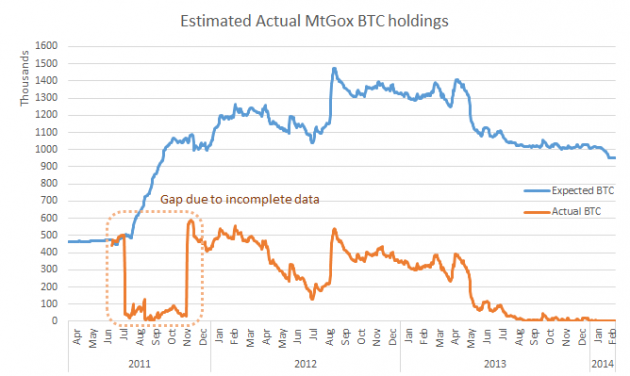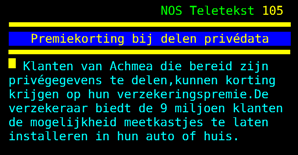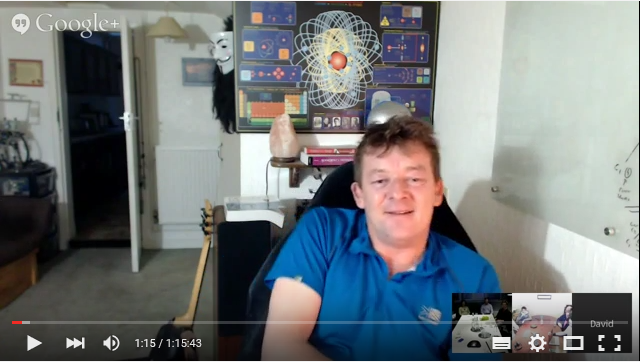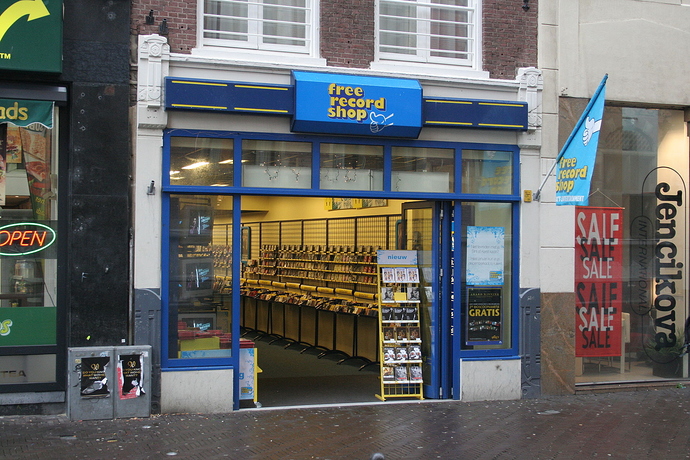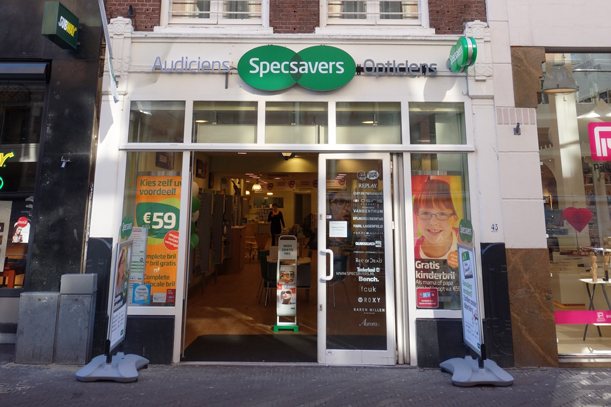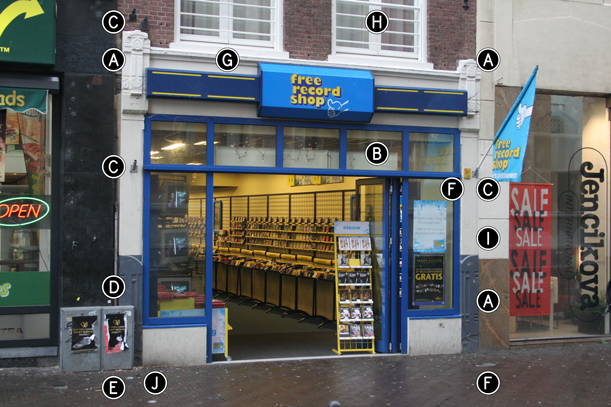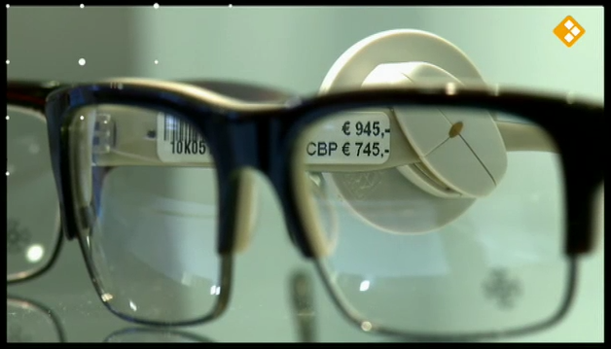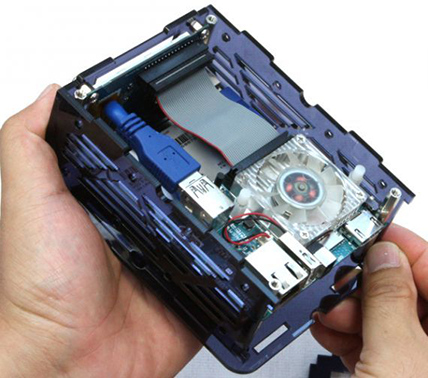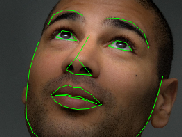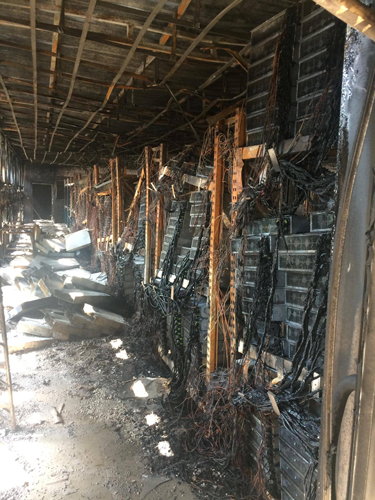JM, ok, gaan we nog even daarop door?
Manisch loeren op internet, hoe is het met de patient? Anamnese, had ik bij de inventarisatie criminelen, overheid en commercie teveel op een hoop gegooid, aan ‘The Intercept’ om het geheel van de zorgvraag in kaart te brengen:
Domestic spying
In isolation, a single metadata record of a phone call, email, or website visit may not reveal much about a person’s private life, according to Ethan Zuckerman, director of Massachusetts Institute of Technology’s Center for Civic Media.
But if accumulated and analyzed over a period of weeks or months, these details would be “extremely personal,” he told The Intercept, because they could reveal a person’s movements, habits, religious beliefs, political views, relationships, and even sexual preferences.
For Zuckerman, who has studied the social and political ramifications of surveillance, the most concerning aspect of large-scale government data collection is that it can be “corrosive towards democracy” — leading to a chilling effect on freedom of expression and communication.
“Once we know there’s a reasonable chance that we are being watched in one fashion or another it’s hard for that not to have a ‘panopticon effect,’” he said, “where we think and behave differently based on the assumption that people may be watching and paying attention to what we are doing.”
The Intercept - Profiled - Sep. 25 2015
Panopticon effect? Dat zoeken we op:
Hence the major effect of the Panopticon: to induce in the inmate a state of conscious and permanent visibility that assures the automatic functioning of power.
Inmate? Gaat hier om een brainwave van ruim twee eeuwen eerder, de koepelgevangenis, zoals nog of niet meer in Arnhem, Breda en Haarlem. Wikipedia:
Principes die het panopticon toepast:
- Individualisering: Elke bewoner heeft een vaste plaats, ziet geen medebewoners en heeft geen contact. Het panopticon is de tegenstelling van de kerkers die Francisco Goya in diezelfde tijd schilderde waarin de donkere massa in het halfduister verloren gaat.
- Volledige zichtbaarheid van het geïsoleerde individu: Dit individu wordt gezien zonder zelf te zien. Hij is object van informatie en wetenschap, nooit een subject dat kan communiceren.
- Een asymmetrische machtsrelatie met de opzichter: Het gebouw is zo geconstrueerd dat de opzichter de celbewoners ziet, maar zij hem niet, sterker, zij vermoeden zijn aanwezigheid alleen maar.
- Machtsmaximalisering: Het is onnodig dat er permanent een opzichter is. Het besef dat men gecontroleerd kan worden, verzekert rust en orde. Mensen passen hun gedrag aan, omdat zij gezien kunnen worden. In hun beleving neemt de alomtegenwoordigheid van controle plaats.
- Het panopticon voelt nauwelijks als onderdrukkend aan.
Gaat het om gevangenen dan is er geen gevaar voor ontsnappingen, gaat het om scholieren dan is er geen gevaar voor spieken, gaat het om arbeiders dan kan geklets vermeden worden, zieken kunnen elkaar niet besmetten en psychiatrische patiënten kunnen elkaar niet aansteken.
Wikipedia - Panopticum (architectuur)
Dokter grijpt naar zijn receptenblokje, transcript van zijn TED-voordracht:
How the mysterious dark net is going mainstream - Sep 2015
10:21 - It’s easy to forget that because of its short life, the Internet has actually changed many times over the last 30 years or so. It started in the '70s as a military project, morphed in the 1980s to an academic network, co-opted by commercial companies in the '90s, and then invaded by all of us via social media in the noughties, but I think it’s going to change again. And I think things like the dark net markets -creative, secure, difficult to censor -I think that’s the future.
10:55 - And the reason it’s the future is because we’re all worried about our privacy. Surveys consistently show concerns about privacy. The more time we spend online, the more we worry about them, and those surveys show our worries are growing. We’re worried about what happens to our data. We’re worried about who might be watching us.
11:14 - Since the revelations from Edward Snowden, there’s been a huge increase in the number of people using various privacy-enhancing tools. There are now between two and three million daily users of the Tor browser, the majority of which use is perfectly legitimate, sometimes even mundane.
And there are hundreds of activists around the world working on techniques and tools to keep you private online – default encrypted messaging services. Ethereum, which is a project which tries to link up the connected but unused hard drives of millions of computers around the world, to create a sort of distributed Internet that no one really controls.
Now, we’ve had distributed computing before, of course. We use it for everything from Skype to the search for extraterrestrial life. But you add distributed computing and powerful encryption – that’s very, very hard to censor and control. Another called MaidSafe works on similar principles. Another called Twister, and so on and so on.
13:15 - So the Internet is about to get more interesting, more exciting, more innovative, more terrible, more destructive. That’s good news if you care about liberty. It’s good news if you care about freedom. It’s good news if you care about democracy. It’s also good news if you want to browse for illegal pornography and if you want to buy and sell drugs with impunity. Neither entirely dark, nor entirely light. It’s not one side or the other that’s going to win out, but both.
13:49 - Thank you very much, indeed.
13:51 - (Applause)
Nymote wordt hier niet eens genoemd, laat staan in Wikipedia, Ethereum is wel al eens langsgekomen in ons ge-heen-en-weer, MaidSafe nog niet. Wikipedia:
MaidSafe
MaidSafe (Massive Array of Internet Disks - Secure Access For Everyone) is an open-source program that enables a decentralized internet platform. Instead of specialized servers, data is stored and distributed by a network of internet-connected computers supplied by network users. MaidSafe handles the allocation of hard disk space and communication between the computers (ensuring redundancy in case a computer goes offline). Data stored on the network is either encrypted or cryptographically signed by MaidSafe-connected applications (clients); the network itself cannot decrypt any of the data.
Users providing storage space, cpu power and bandwidth to the network earn Safecoin, a digital currency that can be used to store information on the network.
Wikipedia - MaidSafe
Kwaliteit bewaken in Wikipedia
This article has multiple issues. [hide]
- This article needs additional citations for verification. (April 2014)
- This article contains content that is written like an advertisement. (March 2014)
- A major contributor to this article appears to have a close connection with its subject. (July 2014)
- The topic of this article may not meet Wikipedia’s general notability guideline. (September 2015)
Wat denken-ze-ervan op het Net, over MaidSafe:
The Server Needs To Die To Save The Internet
Do we have the Internet we deserve? There’s an argument to say that yes, we absolutely do. Given web users’ general reluctance to pay for content. We are of course, paying. Just not with cold hard cash, but with our privacy — as digital business models rely on gathering and selling intel on their users to make the money to pay (the investors who paid) for the free service.
Users are also increasingly paying with time and attention, as more ad content — and more adverts masquerading as, infiltrating and degrading content — thrusts its way in front of our eyeballs in ever more insidious ways. Whether it’s repurposing our friends’ photos and endorsements to socially engineer selling us stuff, or resorting to other background tracking and targeting tricks to divert our attention from whatever it was we were actually trying to do online.
The commercialization of the web is the ugly reality of the hidden cost of all the datacenters and servers required to power the Internet. And that commercialization is compounded by the power of the big digital platforms that dominate the web we have today: Google, Facebook, Amazon. Increasingly we’re forced to play by their rules if we want to participate in the digital space where most of our friends are.
But perhaps there is another, far better way — that benefits individual web users and startup developers alike.
Bouwen in ‘a systems programming language’, Rust, aan het SAFE Network, Secure Access For Everyone:
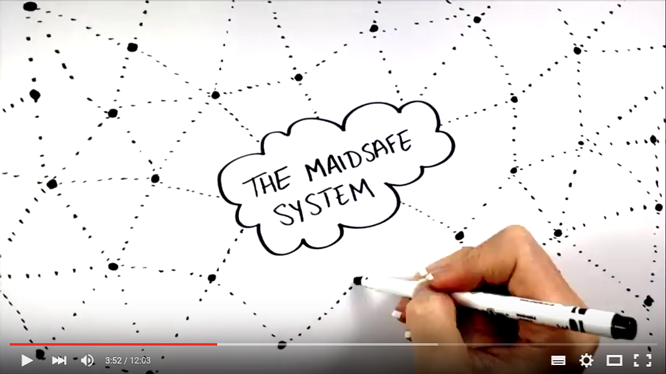
A UK startup called MaidSafe, based in the small town of Troon in Scotland, reckons the myriad problems with today’s Internet can be linked to a design quirk of its underlying architecture. And that the answer to solving the web’s most perennial issues, such as finding sustainable digital business models for content, safeguarding user data and privacy, and thwarting hacking, malware and overreaching surveillance, is to begin again — with a whole new re-architected Internet.
No one said this was a small problem with an easy fix. MaidSafe has actually been working on its new network since 2006, finally coming out of stealth earlier this year to begin detailing its grand plan. It’s now rolling out the first of three test networks, to test the underlying network without any apps on it as yet, ahead of a full beta launch in Q4. The initial test network comprises 180 nodes, located in Singapore, San Francisco, Amsterdam and New York.
So what exactly is this startup building? MaidSafe’s Nick Lambert summarizes the product as “a fully cross-platform, fully decentralized autonomous data and communications network”. What that means in practice is a network that does away with an intermediary layer of servers and datacenters — replacing that with peer-to-peer infrastructure.
Basically, the users of the network are also acting as the network infrastructure by donating a portion of their spare hard drive capacity — with built in incentives for them to do so in the form of a network specific cryptocurrency (called SafeCoin).
TechCrunch - Natasha Lomas - Jul 24, 2014
Jan Marco, jij was bezorgd dan wel ongerust over:
“The other interesting thing is the NSA could train all their resources on one router and they still wouldn’t be able to stop and detect MaidSafe network traffic."
Andere eigenschappen:
It just can’t be shut down
The only way they can actually stop the Safe network in a country is to shut off the whole Internet.
Meanwhile, data being transmitted over MaidSafe’s network is encrypted locally then broken into fragments by its software and distributed randomly across the nodes so it’s stored in a massively decentralized way, thus — so the claim goes — thwarting hacking and snooping.
MaidSafe doesn’t use DNS. Everything goes through routers in a thing called encrypted RUDP packets, so basically the packets go through the router but nothing can tell what’s inside it. And it doesn’t use DNS so they don’t know that it’s traffic for the MaidSafe network. So countries can’t shut MaidSafe down.
In hun FAQ vergelijken ze het zelf ook met de bestaande aanpak van surveillance-problemen, onder andere met TOR:
Tor vs SAFE
Tor is a routing layer that is built on top of the current internet. It works by routing traffic through a relay of nodes, thereby concealing its origin. While Tor can offer anonymity, it comes at the cost of decreased performance. One problem inherent to Tor is that the exit nodes remove the last layer of encryption and therefore are able to read the traffic. Governments can maintain a large number of exit nodes and thereby read some of the traffic. Furthermore, successful attacks on the Tor network have been reported [citation needed]. There is no built-in reward mechanism to incentivize individuals to run nodes, hence their number is still rather small.
The SAFE Network is designed from the ground up to provide strong anonymity by default and does not suffer from any of the weaknesses of the Tor network. Successful attacks on the SAFE Network would require the attacker to gain control over very large percentage of vaults. Even then, the damage an attacker could possibly do is very limited.
The MaidSafe API is free.
There’s also no upfront fee required for the privilege of developing on this network (it’s no Apple App Store).
So how is MaidSafe going to incentivize developers to build apps for the Safe network? That’s also built in to the design, via the SafeCoin cryptocurrency. Developers will be able to hardcode their SafeCoin wallet address into their applications — setting their own usage price (which can also be free if they like) — and then the network will pay them based on their app’s usage.
“There’s a built in revenue stream for them already. They don’t have to go down the advertizing route, or the support route if they don’t want to”.
Ja voorzitter, ik ga afronden, is dit wat en met wie hebben we hier te maken? Zijn twee Schotten, dus met een Britse “zachte-g”, “our slightly funny accents”:
There are no other networks that combine being autonomous and serverless
Lambert jokingly refers to the company as the “oldest startup in history”, given its eight+ years of development, most of which were spent in stealth mode. So why has it taken so long to re-architect the entire Internet? When phrased like that it’s not really much of a question…
“Doing what we’re doing is exceedingly hard. Which is why it’s not really been done before. We’re different because we’ve set out to decentralize the Internet. And we’re also different because nothing like MaidSafe does exist. People will say that’s just like that or that but there is no other network in the world where you can privately log in to your own data, without anyone else knowing. And store data and share data — without the use of an intermediary, I’m just not aware of any network that you can do that on,” says Lambert.
“It probably requires different thought,” he adds. “Developers are trained from a very early stage that the infrastructure is: there is a server, there is a client, the client logs into the server and so on. And I think that has become utterly pervasive throughout the programming community. And I think why it’s not been done before is MaidSafe is such a different mindset.”
When Irvine was designing the Safe network he began by trying to figure out what the problem was with servers — and ended up with the realization that servers are the problem.
“The mindset has been how do we make servers better. Instead of saying servers are the problem let’s try and remove them.”
Now there is a thought.
 Mark Karpeles, the chief executive officer of bitcoin exchange Mt. Gox, center,
is escorted as he leaves the Tokyo District Court on Feb. 28, 2014
Mark Karpeles, the chief executive officer of bitcoin exchange Mt. Gox, center,
is escorted as he leaves the Tokyo District Court on Feb. 28, 2014